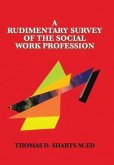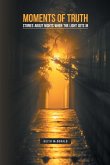Jean-Jacques Rousseau, (1712-1778) was a philosopher and composer of the Enlightenment whose political philosophy influenced the French Revolution, the development of both liberal and socialist theory, and the growth of nationalism.
The book ""Profession of Faith of a Savoyard Vicar: Also, A Search for Truth"" was written by the famous philosopher Jean-Jacques Rousseau and was first published in 1889. The book is divided into two parts, with the first part being a dialogue between a Savoyard vicar and an unnamed interlocutor, while the second part is a personal reflection by Rousseau on the themes discussed in the first part.In the first part, the Savoyard vicar discusses his religious beliefs and his understanding of the nature of God, morality, and the afterlife. He argues that true religious faith is not based on dogma or blind adherence to tradition, but rather on a personal search for truth and a deep understanding of the natural world.The second part of the book is a more personal reflection by Rousseau on the themes discussed in the first part. He discusses his own struggles with faith and his search for a deeper understanding of the world around him. He also reflects on the role of reason and intuition in the search for truth and the importance of living a moral and virtuous life.Overall, ""Profession of Faith of a Savoyard Vicar: Also, A Search for Truth"" is a thought-provoking and deeply philosophical work that explores some of the most fundamental questions of human existence. It is a must-read for anyone interested in philosophy, religion, and the nature of truth.This scarce antiquarian book is a facsimile reprint of the old original and may contain some imperfections such as library marks and notations. Because we believe this work is culturally important, we have made it available as part of our commitment for protecting, preserving, and promoting the world's literature in affordable, high quality, modern editions, that are true to their original work.
Hinweis: Dieser Artikel kann nur an eine deutsche Lieferadresse ausgeliefert werden.
The book ""Profession of Faith of a Savoyard Vicar: Also, A Search for Truth"" was written by the famous philosopher Jean-Jacques Rousseau and was first published in 1889. The book is divided into two parts, with the first part being a dialogue between a Savoyard vicar and an unnamed interlocutor, while the second part is a personal reflection by Rousseau on the themes discussed in the first part.In the first part, the Savoyard vicar discusses his religious beliefs and his understanding of the nature of God, morality, and the afterlife. He argues that true religious faith is not based on dogma or blind adherence to tradition, but rather on a personal search for truth and a deep understanding of the natural world.The second part of the book is a more personal reflection by Rousseau on the themes discussed in the first part. He discusses his own struggles with faith and his search for a deeper understanding of the world around him. He also reflects on the role of reason and intuition in the search for truth and the importance of living a moral and virtuous life.Overall, ""Profession of Faith of a Savoyard Vicar: Also, A Search for Truth"" is a thought-provoking and deeply philosophical work that explores some of the most fundamental questions of human existence. It is a must-read for anyone interested in philosophy, religion, and the nature of truth.This scarce antiquarian book is a facsimile reprint of the old original and may contain some imperfections such as library marks and notations. Because we believe this work is culturally important, we have made it available as part of our commitment for protecting, preserving, and promoting the world's literature in affordable, high quality, modern editions, that are true to their original work.
Hinweis: Dieser Artikel kann nur an eine deutsche Lieferadresse ausgeliefert werden.








